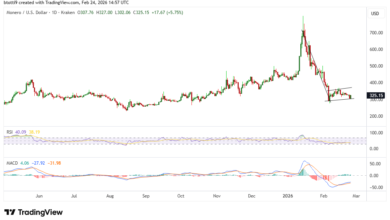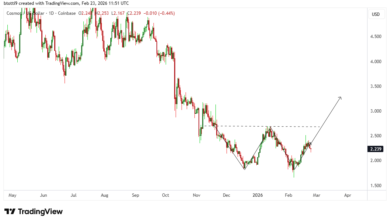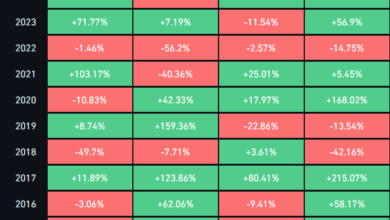Cardano to Empower DeFi with New BitcoinOS Partnership

- Cardano partners with BitcoinOS to enhance DeFi by launching the Bitcoin bridging system via the Grail Bridge, ensuring security and efficient cross-chain transactions.
- BitcoinOS Grail Vaults set a new blockchain security standard by eliminating the “N limit” and offering decentralized, risk-mitigating solutions for Cardano’s ecosystem.
Cardano continues to enhance its decentralized finance (DeFi) capabilities by partnering with BitcoinOS to launch a secure Bitcoin bridging system via the BitcoinOS Grail Bridge. With this move, Cardano positions itself as a leader in security and efficiency, offering a seamless experience for cross-chain transactions.
By integrating BitcoinOS Grail Vaults, Cardano becomes one of the first Layer-1 blockchains to implement decentralized Bitcoin bridging. This milestone sets a precedent for efficiency and security in the blockchain sector, opening doors for groundbreaking applications.
On September 10, 2024, BitcoinOS partnered with the Layer-2 scaling solution Merlin Chain to deploy the Grail Bridge. The move aims to refine cross-chain transactions without centralized trust mechanisms, showcasing a commitment to decentralization.
Grail Vaults Redefine Blockchain Security — No More “N Limit”
BitcoinOS has stood out for its robust encryption model, addressing a critical flaw in traditional blockchain bridges. Most existing models rely on an “honest majority” assumption, leaving funds vulnerable if the majority is compromised.
In contrast, BitcoinOS Grail Vaults mitigate this risk by ensuring network security as long as one verifier remains trustworthy. This decentralized model also eliminates concentration risks, setting a new benchmark for blockchain safety. The system seeks to do away with the verifier limit, or “N limit,” a restriction common in other networks.
This collaboration could redefine blockchain security standards, particularly benefiting Cardano’s ecosystem. By integrating BitcoinOS, Cardano aims to overcome challenges in its UTxO-based system, including gaps in development tools. Edan Yago, a key expert, emphasized the importance of this effort, stating:
The reality is that the dev environment for EVM is far more advanced in terms of dev tooling. This makes it much easier. Key components required for a Cardano integration don’t even exist yet. We are working to correct that.
ADA Struggles Amid Cardano-BitcoinOS Unite
The partnership is set to unlock trillions of dollars in liquidity, granting Cardano users access to a vast pool of assets. This influx has significant potential to supercharge Cardano DeFi applications, enabling the creation of innovative financial products and services.
For Bitcoin, the collaboration introduces a new level of programmability. It allows the Bitcoin network to engage in trustless smart contracts and interact seamlessly with other blockchains. This development extends opportunities for Bitcoin holders, who can now safely connect with ADA and its related services.
While Cardano’s strategic steps position it as a DeFi powerhouse, its market performance remains in flux. ADA was trading at $0.9085 at the time of writing, reflecting an 8.40% decline in the past 24 hours. The token is on track for a downward trajectory with a 12% price fall in the week, signaling lower investor interest.





